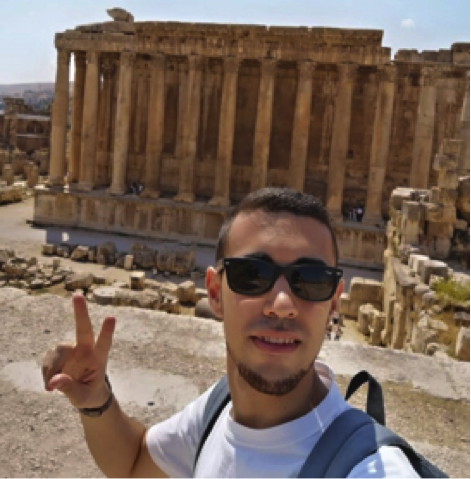
After my Diploma in Interreligious Studies, I had the chance to continue studying Islamic Sciences and Islamo-Christian relations at the Saint Joseph University inBeirut (Lebanon), thanks to the existing agreement between the two Universities and most of all thanks to Fr. Laurent Basanese, the Director of the Gregorian Centre for Interreligious Studies, who has trusted in me since the beginning. Everyone can imagine, the experience as a student abroad is something that really helps you to grow up from both a cultural and a human point of view.
Then, dare I say, spending a year in Lebanon has been a truly enriching opportunity, because of the peculiar context there, the program of studies and the detailed approach to the sociological and religious fields that are so important nowadays.
We have to admit that Lebanon is facing a severe political and economical crisis, situation that became even worse when the COVID-19 pandemic reached the country. However, we are speaking about a country that any visitor will always remember for its natural and historical beauty. In Lebanon, you can enjoy the sunshine on the beach and the cool climate at the mountain, you can visit both Roman and Phoenician ruins, you can find the green nature and the chaotic atmosphere of a souk: colours, scents and sounds are unique there. This country, then, is different from other neighbouring Arab countries, since its population is divided into several religious communities, such as Sunnis, Shiites, Maronite and Latin Catholic Christians, Orthodox Christians and Druzes: what is remarkable is that they still keep a political system which doubtless does not fit anymore the needs of the society and assigns the major political functions according to the religious affiliation. Indeed, religion and politics are alarmingly close. These are the main reasons why, in my opinion, the chance to study Islamo-Christian relations in Lebanon is more challenging than studying the same thing in any other part of the world. Also, I had the possibility to improve my level in Arabic language, that is essential to deepen the Islamic tradition.
At the University, especially in the Department of Religious Sciences where I had been attached, I met really nice people who supported me in any circumstance. Their kindness and readiness to help is something that you hardly find in academic institutions.
In the end, I hope that this kind of experience abroad will be extended to more and more students, because books and libraries are fundamental but culture is also – and above all – a matter of people, lives and encounters.


